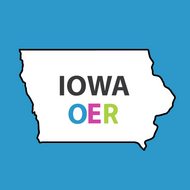Perspectives of Aquatic Toxicology
(View Complete Item Description)"Perspectives of Aquatic Toxicology" is a Wikibook created in Aquatic Toxicology course (A ECL 444/544X / TOX 444/544X) taught by Dr Boris Jovanovic at Iowa State University in Spring 2019. This course adopted open pedagogy practices that included the integration of a renewable assignment whereby students contributed to the creation of this Wikibook. The topics covered in this edition (2019) include: Aquatic Toxicity Tests, Bio-transformations of Xenobiotics, and Micro-plastic Pollution in the Aquatic Environment. Future students taking the Aquatic Toxicology course will contribute to this collective work and help increase the coverage of the topics related to the interaction between anthropogenic chemicals and aquatic ecosystems.
Material Type: Textbook




















